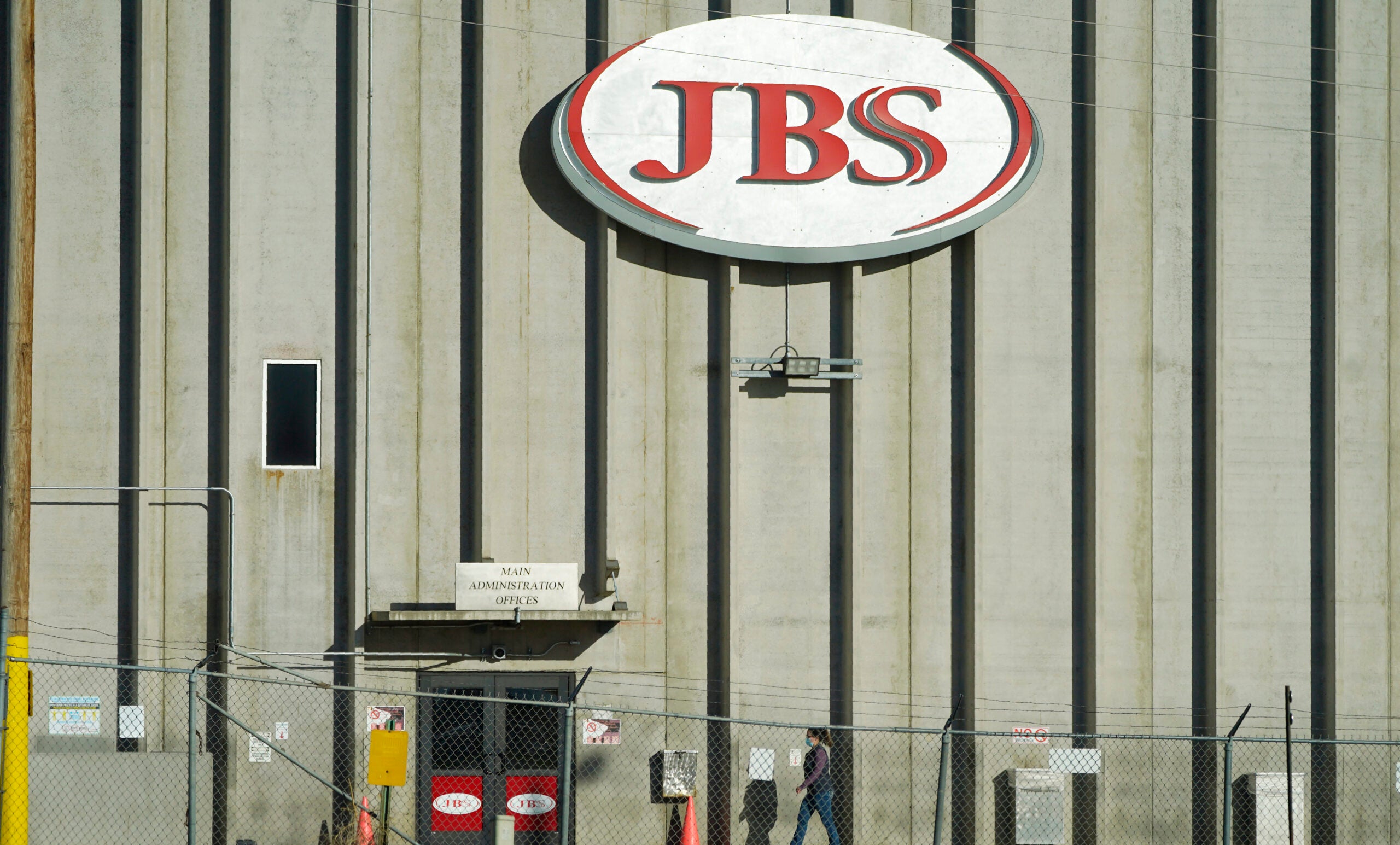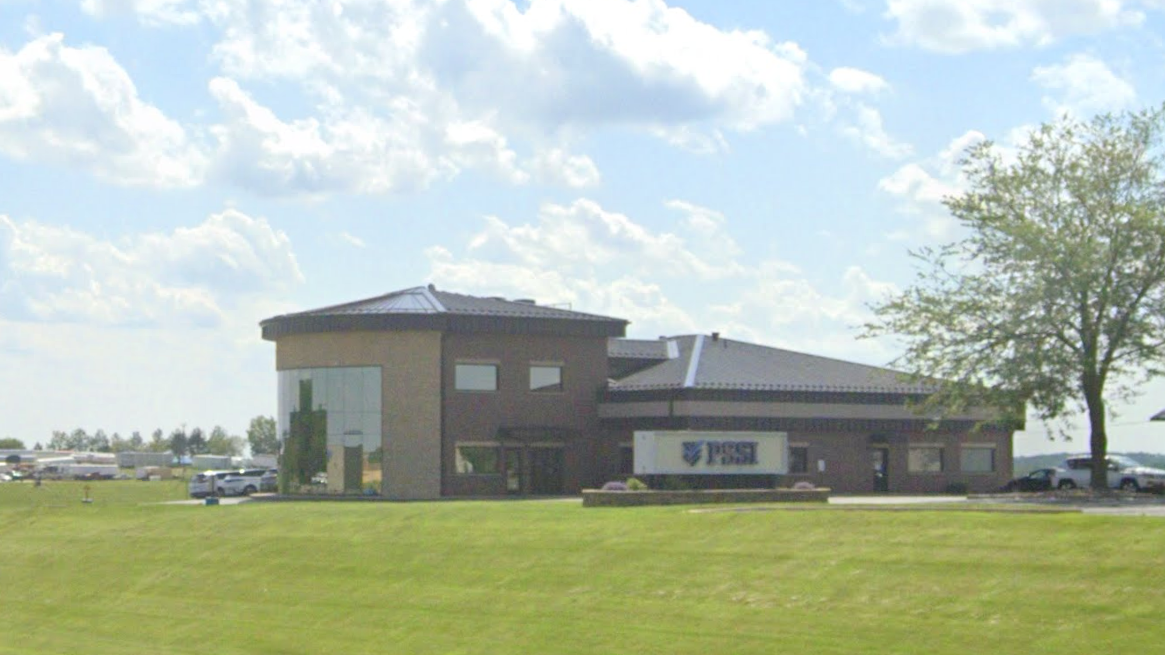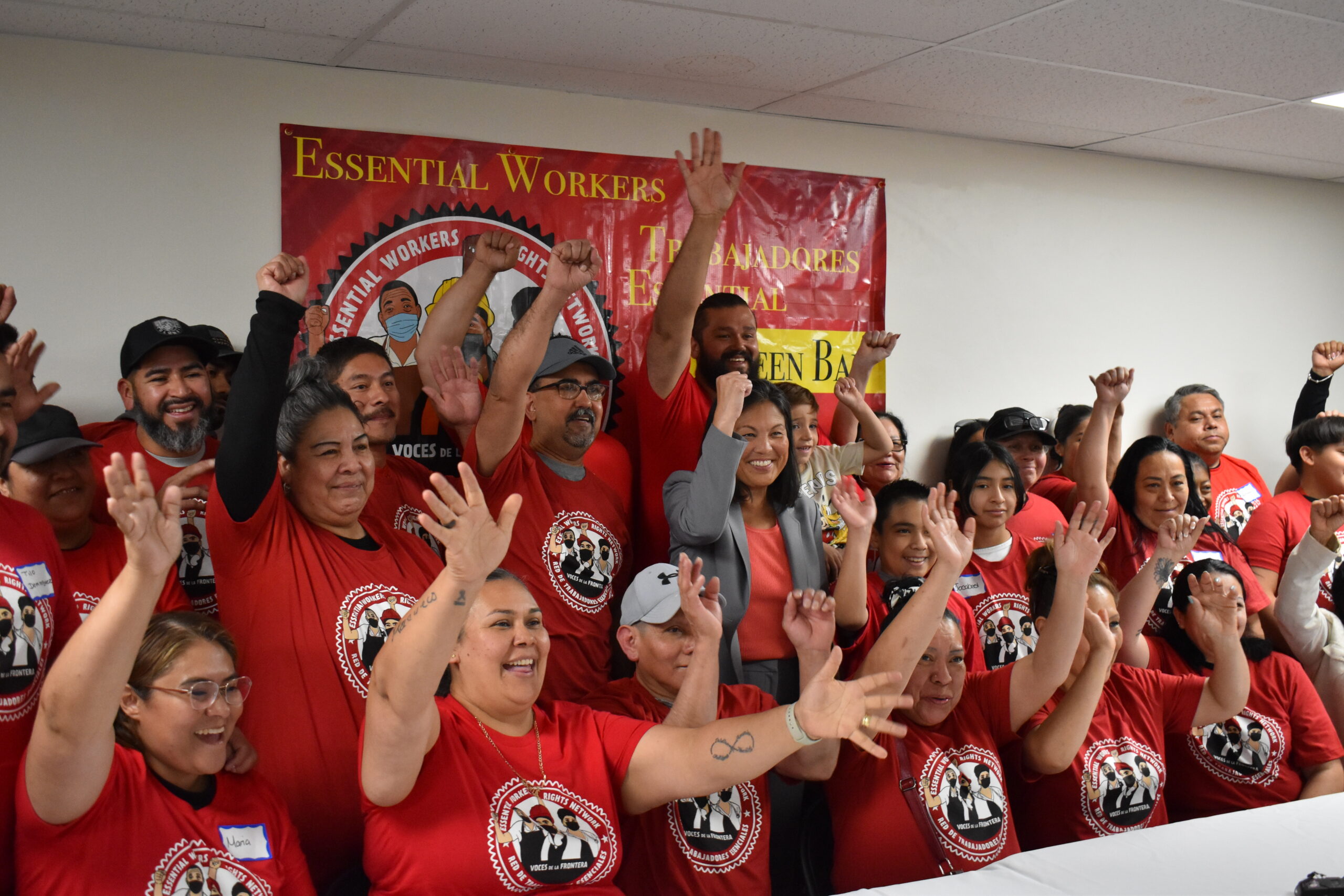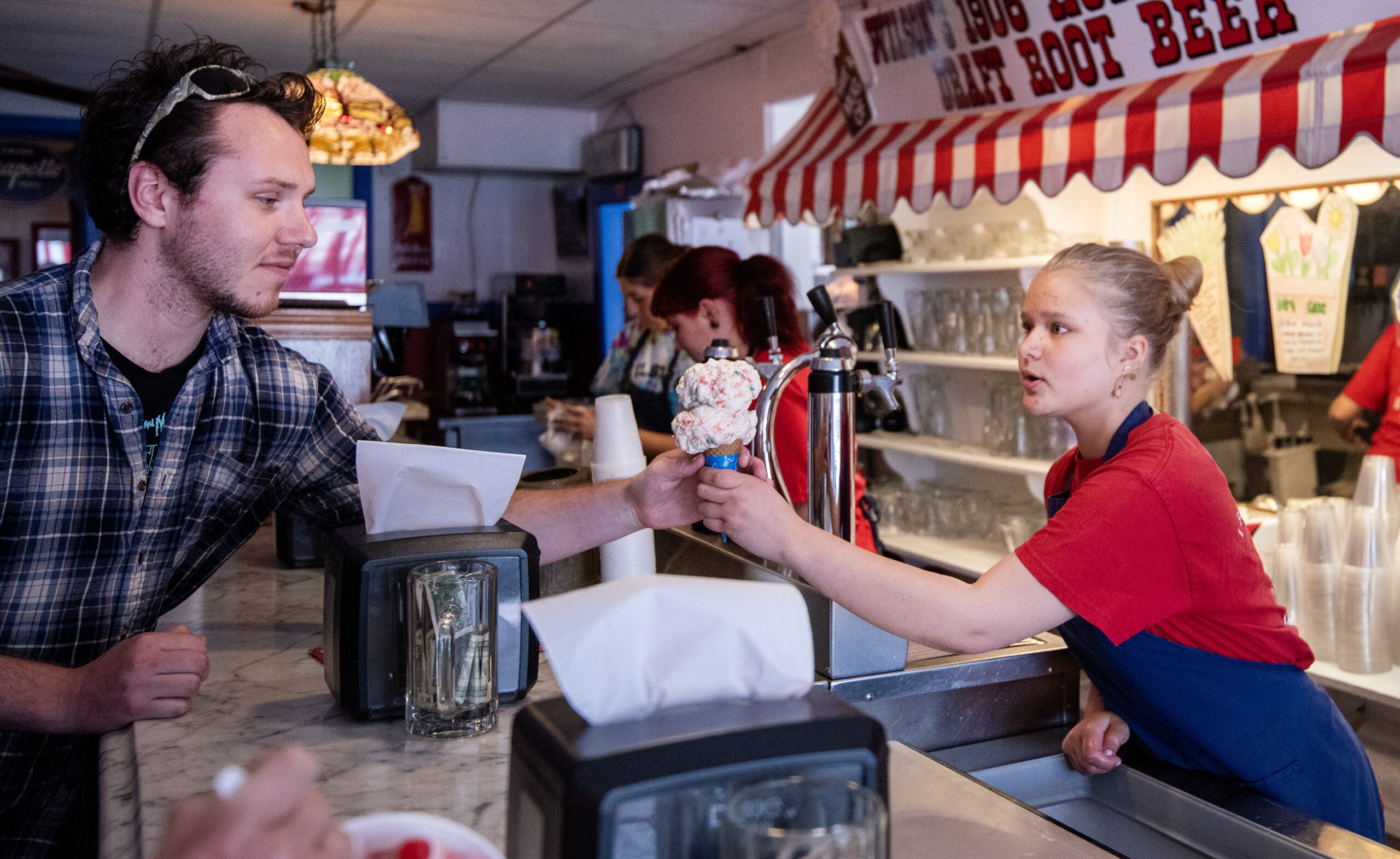A recent settlement between two of the nation’s largest meatpackers is renewing questions about child labor and how to protect kids from working in the meatpacking industry — with one researcher finding that Wisconsin could be a model for protecting children from labor abuses.
Perdue Farms and JBS will pay a combined $8 million dollars after the U.S. Department of Labor found they employed children through third-party staffing agencies. JBS has a beef plant in Green Bay that was not named in the department’s violations from the settlement in January.
U.S. law prohibits companies from employing youth younger than 18 in meatpacking plants due to the hazardous conditions. But this hasn’t stopped meatpackers from employing children in these environments.
Stay informed on the latest news
Sign up for WPR’s email newsletter.
Last year, the U.S. Department of Labor announced that Kieler-based sanitation company Packers Sanitation Services had paid more than 100 children from ages 13 to 17 years old to work overnight shifts in slaughterhouses spanning eight states. The company paid $1.5 million in penalties, according to a release from the department.
Alexia Kulwiec is an attorney and an associate professor at the University of Wisconsin-Madison School for Workers. She analyzes national labor policy in agriculture and food systems.
Kulwiec told WPR’s “Wisconsin Today” that children working in these facilities are often exposed to dangerous conditions.
“Sanitizing the facilities can be a very dangerous job in meat packing and poultry processing,” Kulwiec said. “It’s bloody work. It’s dangerous work. Sometimes folks turn on the equipment to clean it, even though they should not. That’s an instance in which people will get harmed.”
Kulwiec added that JBS also employed minors on overnight shifts in plants mentioned in the settlement last month, violating additional child labor standards.
Wisconsin’s youth work permit system helps investigate violations
Nina Mast is a policy and economic analyst with the Economic Policy Institute, a nonprofit think tank in Washington, D.C. Mast wrote a report on new research that found states that mandated work permit systems saw more than 15 percent fewer child labor violations and about 35 percent fewer minors involved in these violations compared with states lacking these protections.
Mast said Wisconsin’s youth work permit system improves enforcement against child labor violations.
“The unique thing about the Wisconsin system is that they’re actually using the small fees that employers have to pay for the work permit to actually fund their labor enforcement, specifically their child labor enforcement,” Mast said.
“It’s really a win-win,” she continued. “Because it’s a system that not only keeps kids safe, but also funds this enforcement priority that we know is underfunded in a lot of states and at the federal level.”
Children have some federal protections under the 1938 Fair Labor Standards Act, which lists 17 hazardous occupations that no minor under 18 can do. These federal standards also dictate how many hours minors can work per day. But Mast said these federal standards are inadequate for 2025 — thus making state youth work permit systems necessary.
“This is a law that was passed in 1938 and largely has not been updated since that time. [It] was passed at a time when fewer than half of students were graduating high school,” Mast said. “There’s really been widespread acknowledgement that the Fair Labor Standards Act, while important, is insufficient to protect workers in our modern economy.”
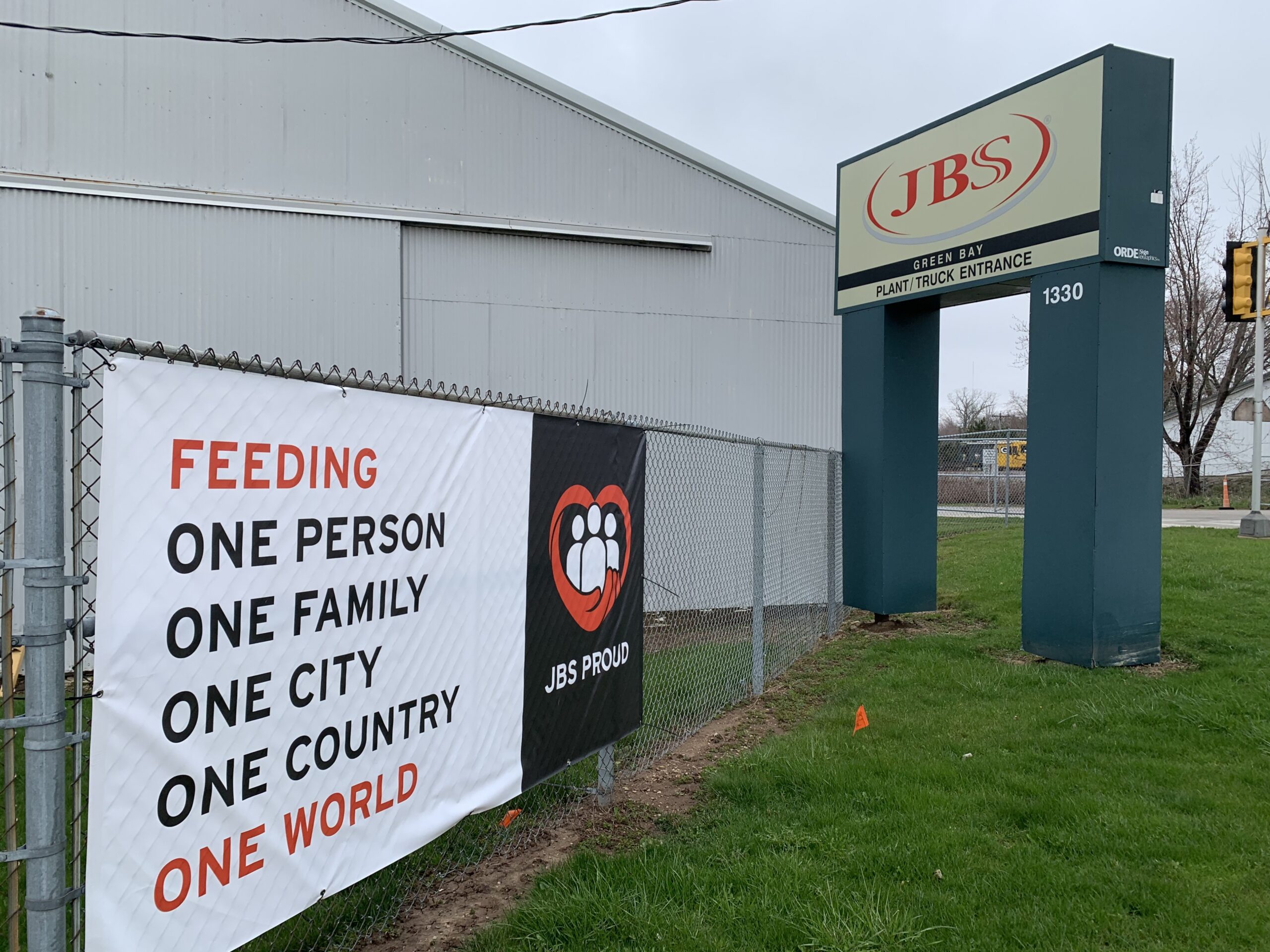
Youth work permits are not needed in Wisconsin for minors working in agriculture or domestic service work. Agriculture work has led to half of all work-related fatalities for children from 2003 to 2016, according to an analysis from the U.S. Government Accountability Office.
Mast said these exceptions get at larger problems with existing child labor laws.
“We absolutely do see the need to raise the standards in agriculture, not just on youth work permits, but on all the standards we have in child labor,” Mast said. “But it’s just been a very difficult uphill battle because of the lobbying pressure and just the historical entrenched limitations that we have on labor standards in agriculture.”
Why are minors working in slaughterhouses?
Kulwiec said it’s important to note that a large portion of children found working in meatpacking plants are migrant children.
“I believe that the companies that employ these folks are looking for the cheapest labor,” Kulwiec said. “They are looking for folks that are not going to be raising health and safety concerns because they are intimidated within the system to be able to report these kinds of problems. They’re an easy group to exploit in terms of labor concerns.”
Meatpacking plants that employ children have often used third-party staffing agencies to avoid directly employing children. A series of stories from The New York Times in recent years has found that migrant children are being employed in grueling jobs across many industries nationwide.
Kulwiec said labor agencies have made increased efforts in recent years to pursue the so-called “final employers,” like Perdue or JBS. Last October, the U.S. Occupational Safety and Health Administration released stricter guidance in an effort to improve the safety of sanitation and other types of workers at meatpacking facilities.
However, she said this hasn’t necessarily resulted in changing practices throughout the meatpacking industry.
“This is not something that these companies have been blind to,” Kulwiec said. “It’s been going on for a while, and I think they continued to do it until they had to reach an agreement with the Department of Labor.”
Wisconsin Public Radio, © Copyright 2025, Board of Regents of the University of Wisconsin System and Wisconsin Educational Communications Board.
